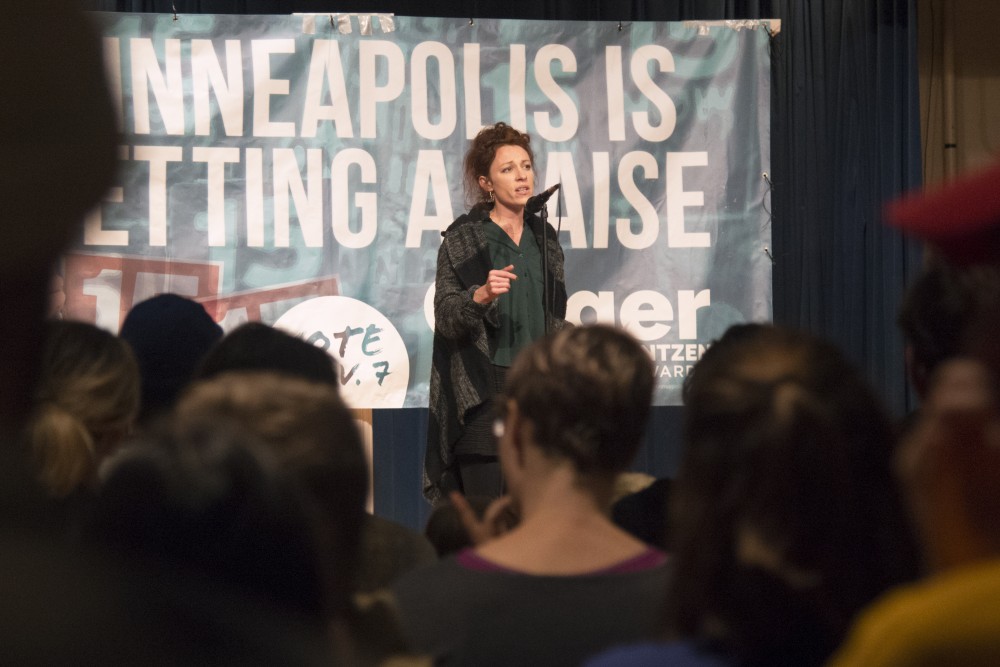Last week’s election results evoked mixed emotions from Ward 3 City Council candidate Ginger Jentzen and her campaign.
Jentzen and supporters were thrilled with an initial lead on election night, but suffered defeat the next day to DFL-endorsed Steve Fletcher after the third round of ranked-choice tabulation. Despite defeat, Jentzen and members of her campaign said they feel they have gained support for their stances on housing and rent control, among several other issues.
“While the results overall are a setback, it’s only in relation to how far I think this discussion has already come,” said Jentzen, a member of Socialist Alternative.
Jentzen noted she won first-choice in every precinct where students made up more than half of the voting population. Ward 3 encompasses Marcy-Holmes, North Loop and parts of downtown Minneapolis, among other neighborhoods.
“The fact that a socialist like me won a majority support, especially in that first round … shows that there is enormous space for these movements to grow,” Jentzen said.
Jentzen, who raised the most money ever for a Minneapolis City Council candidate, said she hopes to see the support she gained from running for the City Council culminate in increased support and action on issues like affordable housing.
Nestor Garcia, a campaign door-knocker and volunteer, said Jentzen’s ideas of taxing big developers and implementing rent control resonated with students and residents throughout Ward 3.
“They see the effects of gentrification that is spreading from downtown and pushing people out,” Garcia said.
Garcia was one of many volunteers that Tyler Vasseur, a University of Minnesota student, managed as field coordinator for Jentzen’s campaign.
“Rental prices are going up like crazy, and they’re building nothing [viable] for housing,” Vasseur said.
Both Vasseur and Garcia said they feel confident in Jentzen’s abilities to make serious strides with housing issues in the months to come.
“Ginger has proved to be a great leader … able to work and build a broad coalition of organizations, unions and community space-based organizations,” Garcia said, particularly noting Jentzen’s work with the successful “15 Now” movement. “I think she is capable of a powerful movement to get things done.”
Jentzen said the election results emboldened her campaign members and supporters to stand up to big business and developers.
“Even though we lost the election, we built a base of support for the ideas that our program really stood for,” Vasseur said. “I’m incredibly proud of how well we did.”
She added the loss will not deter her or the Socialist Alternative’s ability to grow, and has encouraged them to engage more with students on campus.
“These fights aren’t going away, so I think working with students brings an extremely important voice in this part of the city,” Jentzen said.
In addition to housing issues, Jentzen and several other Socialist Alternative members insisted they would stand with the Teamsters Local 320 union, comprised of hundreds of University of Minnesota workers, as they enter a contract battle with University administration.
“It’s not, in some ways, just about the election, but about how we can build and deepen the movements that are going to have a huge impact over the next several years,” Jentzen said.








